Blake Butler
http://www.gillesdeleuzecommittedsuicideandsowilldrphil.com/
Blake Butler lives in Atlanta. His third book, There Is No Year, is forthcoming April 2011 from Harper Perennial.
http://www.gillesdeleuzecommittedsuicideandsowilldrphil.com/
Blake Butler lives in Atlanta. His third book, There Is No Year, is forthcoming April 2011 from Harper Perennial.
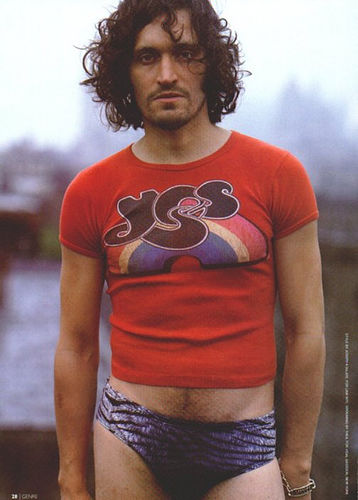 1. Nice interview with Eric Skillman, a designer for Criterion DVDs.
1. Nice interview with Eric Skillman, a designer for Criterion DVDs.
2. If you’ve never happened upon Vincent Gallo’s merchandise site, his personal services, are something else. Oldie but goodie. Here’s Yes + Briefs —>
3. Watched Shutter Island the other night. B-. Finally Scorsese’s made a movie I won’t be watching again and again. Memory twist? Really? I guess everyone gets old.
4. If you have questions for Hiromi Ito, author Killing Kanoko, drop them in Johannes’s comments here.
5. The new round of Significant Objects, raising funds for Girls Write Now, is live, with texts written around weird objects by quite a list of people (including our own Justin Taylor, favorites Evenson, Moody, Mellis, Dalton, Greenman, and live right now myself). Watch out and do a bid!
 Green Lantern Press is simply making some of the most beautiful, singular limited run book objects of anybody in the pack. If you haven’t browsed their catalog recently, it’s overflowing: such a wide range of things to dig in, from new translation of Rimbaud, to art space phone books, to indexes and collection, so on.
Green Lantern Press is simply making some of the most beautiful, singular limited run book objects of anybody in the pack. If you haven’t browsed their catalog recently, it’s overflowing: such a wide range of things to dig in, from new translation of Rimbaud, to art space phone books, to indexes and collection, so on.
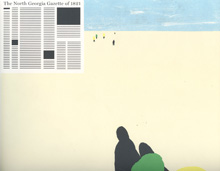 In particular, I’ve been trying to write a review of THE NORTH GEORGIA GAZETTE AND WINTER CHRONICLE by William Edward Parry and the crews of the Hecla and Griper for about six months now, (“An annotated transcription of the 1821 newspaper, The North Georgia Gazette. The newspaper, written and published aboard an English ship trapped in the Arctic, was an attempt by the captain to lessen the boredom of a long, isolated winter.”) and every time I pick up the book to dig further, I get so consumed in a single page that reading the book as a whole could conceivably go on forever. More on this hopefully sometime soon, but in the meantime: revel in some of this.
In particular, I’ve been trying to write a review of THE NORTH GEORGIA GAZETTE AND WINTER CHRONICLE by William Edward Parry and the crews of the Hecla and Griper for about six months now, (“An annotated transcription of the 1821 newspaper, The North Georgia Gazette. The newspaper, written and published aboard an English ship trapped in the Arctic, was an attempt by the captain to lessen the boredom of a long, isolated winter.”) and every time I pick up the book to dig further, I get so consumed in a single page that reading the book as a whole could conceivably go on forever. More on this hopefully sometime soon, but in the meantime: revel in some of this.
“For an author to write as he speaks is just as reprehensible as the opposite fault, to speak as he writes; for this gives a pedantic effect to what he says, and at the same time makes him hardly intelligible.” Schopenhauer
You missed the live reading but you can still buy Dottie’s books!
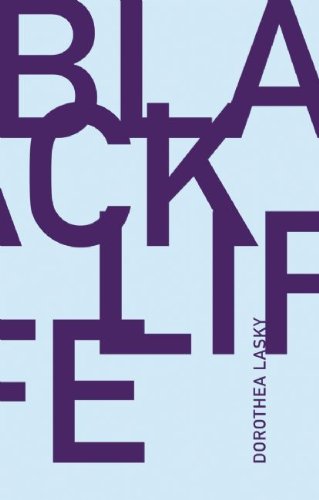
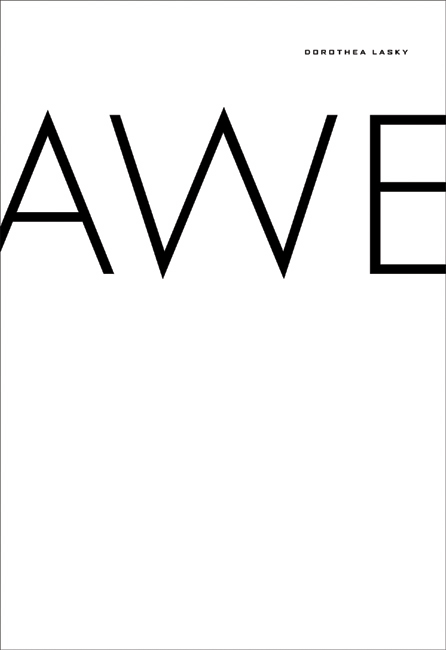
Through midnight tonight, Wave Books has kindly offered half price copies of Dorothea’s fantastic first book AWE (the $7 price will run through midnight, so go now!). Black Life will be released April 1st!
In the meantime, don’t forget to check out the 2010 Wave Books Package, which includes everything Wave will be putting out this year (a package of magic), including Black Life, Mary Ruefle, Michael Earl Craig, a reissue of CA Conrad’s The Book of Frank, and tons more.
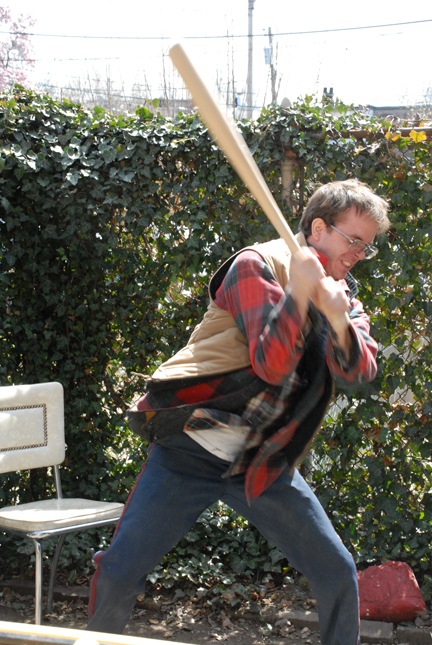 We are writers. Writers use language. There are lots of things we can do with language. As Robert Lopez says: “I always start with language.” And when he says that, he means his language, his particular language, and that every writer should have their own particular language. Raymond Carver gets at that with this (from “On Writing”): “It’s akin to style, what I’m talking about, but it isn’t style alone. It is the writer’s particular and unmistakable signature on everything he writes. It is his world and no other. This is one of the things that distinguishes one writer from another.”
We are writers. Writers use language. There are lots of things we can do with language. As Robert Lopez says: “I always start with language.” And when he says that, he means his language, his particular language, and that every writer should have their own particular language. Raymond Carver gets at that with this (from “On Writing”): “It’s akin to style, what I’m talking about, but it isn’t style alone. It is the writer’s particular and unmistakable signature on everything he writes. It is his world and no other. This is one of the things that distinguishes one writer from another.”
When I think of language, I think of sentences. As John Banville says: “The sentence is the greatest human invention of civilization.” There are lots of things that we can do with a sentence. We can manipulate the syntax, the diction, the stresses, the tenses, the acoustics, the morphemes and the phonemes, syllables and prefixes and suffixes, the speed, and the length. As Andy Devine says: “The English sentence – because of English syntax – is infinitely expandable.”
We can manipulate objects, subjects, predicates, infinitives, participles, gerunds, phrases, clauses, and determiners. We can manipulate articles, nouns, verbs, adjectives, adverbs, conjunctions, and prepositions. Joseph Young says: “Articles propel the sentence, push it off and keep it moving.” Stephen King says: “The road to hell is paved with adverbs.” Joseph Brodsky says: “Don’t use too many adjectives.” Andy Devine says: “Adjectives are not as bad as adverbs.”
For instance, I like to structure sentences around articles and conjunctions and prepositions—the more perennial parts of language—so that my narrator has a singular way to speak. And I like to move prepositions to the end of the phrase or the end of the sentence. That was one of the first sentence things that I figured out for myself. It’s not what we’re taught to do, but it is still quite obviously English, and it creates a kind of semantic link in the sentence—and this vaguely unsettling feeling.
New Action Yes is live, with a shitload of the good, including Juliet Cook, Peter Davis, Christopher DeWeese, Justin Dobbs, Claire Donato, Daniel Borzutzky, and a slew of speech. Eat it.
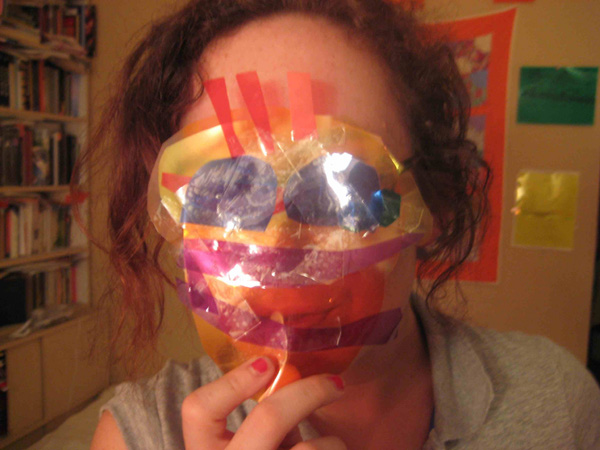
Don’t forget tomorrow, Wednesday, at 9 PM Eastern (that’s 6 on the west coast!), Dorothea Lasky will be reading live here on HTMLGIANT from her soon forthcoming second book Black Life (which I read this weekend, and good god), so be sure to come and tune in, in your living room, or wherever!
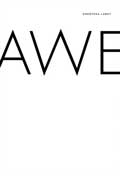
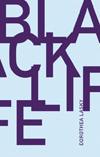 During the reading, Wave Books have kindly offered half price copies of her fantastic first book AWE, and we’ll be giving away two free advance copies of Black Life. In the meantime you can still subscribe to the 2010 Wave Books Package, full of magic and new. Go! Then come back tomorrow at 9 Eastern!
During the reading, Wave Books have kindly offered half price copies of her fantastic first book AWE, and we’ll be giving away two free advance copies of Black Life. In the meantime you can still subscribe to the 2010 Wave Books Package, full of magic and new. Go! Then come back tomorrow at 9 Eastern!